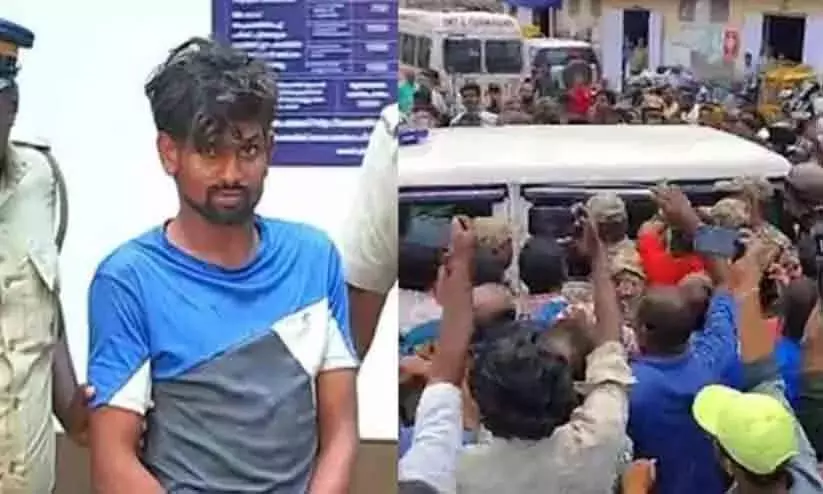
Public outrage alone won't bring solution
text_fieldsNews of violence against children and women seems to have no end. The most recent of them that we came to know was the gruesome torture and murder of a five-year-old girl in Aluva, Kerala. It is a situation where there is no certainty other than that we can hope that such incidents will not happen again. Acts of violence against women are innumerable in our country, whether at home, school, public places or public transport. Figurative reactions that the country is shaken and the public conscience is shaken are common, but as a matter of fact, are there any effective action being taken in the country to eliminate such atrocities? Has the government, the judiciary, the law enforcers, the media or the general public taken at least one step in a sincere manner? If so, would the cry of women and the cries of bleeding babies have been constantly repeated? Only those events that hit headlines some way are discussed among the general public. Even our national media were not interested in talking about the challenges and crises faced by the women and children of Manipur until the video of anti-women sexual violence in Manipur where every civilized society bows its head in shame. According to the figures available in the National Crime Records Bureau, the number of rapes reported in India in the year 2021 alone is 31,677. That is, 86 per day. Uttar Pradesh accounts for the highest number of anti-women violence in the country that year. In the three years from 2019 to 2022, 13.13 lakh women and girls went missing from the country. Most of the disappearances took place from Madhya Pradesh. This is the situation of two states that claim to be the state of efficient governance and to be governed by efficient chief ministers. In a country where women and children are not safe, what efficiency can we be excited about?
Unwillingness to recognize women and children as human beings, or inhumanity, is the root cause of every form of torture, violence and human trafficking. All such atrocities are aggravated by the 'public conscience' that wakes up only by looking at who is the victim of violence and who is the culprit, and a legal system that becomes efficient with the same response. Some examples would tell it better. In 2012, after the gang-rape in Delhi, the entire country was shaken and even a march was held at the Rashtrapati Bhavan. However, in 2020, the gang-rape killing of a Dalit woman in Hathras did not shake the country in a similar manner, and the government did not show any alertness to take action against the accused, but it rose with alacrity to arrest under UAPA the mediapersons and activists who went to the site. In the case of the rape and murder of a girl in Jammu and Kashmir's Kathua, a demonstration was even held in solidarity with the accused. Even the BJP parliament member, who is facing allegations of sexual harassment against women wrestlers, is being protected by the powerful state and law enforcement mechanisms. It was not long ago that during the Gujarat genocide, the accused who were found to have committed brutal sexual violence and murders and were convicted by the court were released with a reduced sentence only to be welcomed as martyrs. What is the message of all this?
It is very serious that Kerala is counted as one of the states where women and children can travel only with fear. Public outrage was overwhelming as the accused in the Aluva incident was a worker from another state. The people even yelled that they should not hand him over to the police but let people deal with in scenes which the media shot and showed to the people. The tragic incident in Aluva will fuel the already existing prejudice and hatred against the migrant workers who have been involved in all walks of life in different parts of the state. But can anyone guarantee that the children and women of this land will be safe even if all those workers are driven out? A country where violence against women and children continues is always a dangerous country. The only solution to this serious situation consists in the enforcement of a stern law regardless of who the aggressor or the victim is.

























